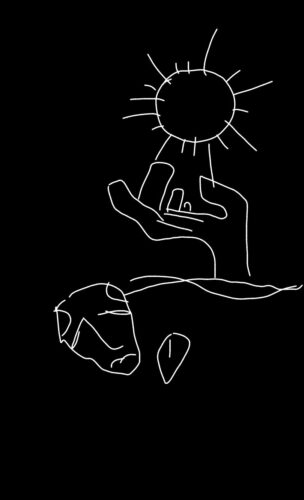There is a strange expectation that, beyond choosing our words carefully, we must also choose our face. A raised brow here, a downward curve there, and suddenly a story is written about us, one we never authored.
The world loves to say, “It’s not what you said, it’s how you said it.” But what if you didn’t say anything at all? What if your so-called “tone” was only the resting shape of your mouth, the way your eyes naturally focus, the face you were born with?
I was not handed a catalogue at birth to pick a smile I could wear forever. No stylist came to arrange my cheekbones into permanent warmth. Yet, I find myself constantly told that my neutral is too cold, my serious is too sharp, my silence is too loud.
We live in a theatre where everyone is cast in the role of The Pleasant One. The script is unwritten, but the cues are clear. Your face must be the wallpaper of the room, blending into the mood of those around you. You must learn the choreography of nods and smiles, timed to the rhythm of other people’s comfort. It is not enough to speak kindly; you must look like kindness itself, even when you are simply thinking.
But I do not act on a stage. I refuse to wear a mask that nods in the right places, smiles without reason, and reassures others that they are liked, even when I am lost in thought. A mask, no matter how convincing, is still a lie. And for me, black is black, it will never be painted white just to make someone else comfortable.
“We talk about freedom of speech, but where is the freedom of face?”
When I meet someone, I am meeting their whole truth: their words, their tone, their pauses, and yes, their unguarded expression. Why can’t others extend the same courtesy? Why do we forgive sharp words if they come with a smile, yet condemn quiet honesty if it arrives in a neutral face? Somewhere along the way, society decided that appearance outranks intent.
And here is the danger. When people focus on expressions over actions, they create false narratives. The gentle person is painted as harsh. The strong-minded person is labelled arrogant. The deep thinker becomes the aloof outsider. Judging a book by its cover was always a bad idea, but judging a soul by its resting expression might be worse.
The pressure to “look friendly” has made honesty a performance. We are told to bend our faces into permanent approval, to smile on command, to hide our fatigue, our reflection, even our pain, for the sake of appearances. But a face that never tells the truth is not a gift to others rather it is a loss of self.
And the irony? Our expressions are not always mirrors of our thoughts. A quiet face is not a cruel one. A calm face is not an uncaring one. A serious face may simply belong to a serious mind, and that is not a fault to correct.
If my face unsettles you, perhaps the discomfort lives in your perception, not in my skin. I can control my words, my actions, my choices, but not the architecture of my features. To fight with my own face would be to fight with God, and I will not wage a war with my maker for the sake of others’ projections.
So, who should I blame? Not my parents. Not God. Not myself. If you choose to read an expression I never wrote, the ink is in your mind, not on my face.
*









Add comment